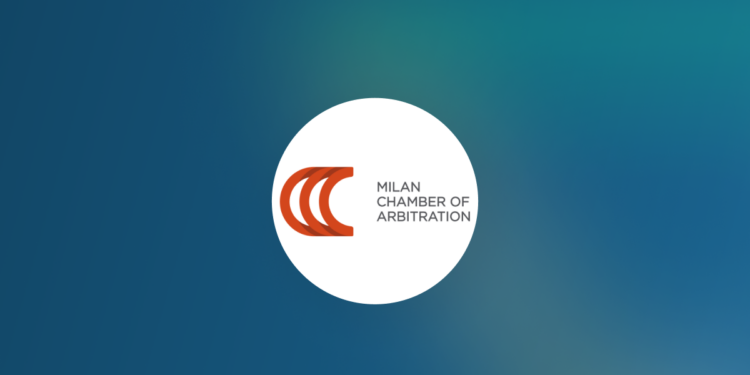Insights from the 2024 Annual Report of the Milan Chamber of Arbitration
THE AUTHOR:
Milan Chamber of Arbitration (“CAM Milan”)
Introduction
The Milan Chamber of Arbitration (“CAM”) stands as a pivotal institution in Italy‘s alternative dispute resolution landscape. Its 2024 Annual Report underscores significant advancements in arbitration practices, reflecting both domestic and international trends. This article delves into the key statistics that have shaped CAM’s operations in 2024.
Statistical Overview
In 2024, CAM received 135 new arbitration requests, marking a substantial increase from the previous year. The total value of these disputes exceeded €1.36 billion, more than doubling the 2023 figure of €540 million. Notably, for the first time, CAM processed an Emergency Arbitrator application, highlighting the growing demand for expedited dispute resolution mechanisms.
The preference for a sole arbitrator has risen to 63% of cases, a 16% increase from the previous year. This shift indicates a trend towards streamlined proceedings, potentially reducing costs and time. Conversely, multi-arbitrator panels were chosen in 37% of cases, reflecting the complexity and value of certain disputes.
Demographics of Parties Involved
The composition of parties engaging in arbitration has diversified. Companies accounted for 63.3% of the cases, while individuals represented 32.3%. Among individuals, a notable 58% increase was observed in the participation of professionals and shareholders, suggesting a broader acceptance of arbitration beyond corporate entities.
Geographically, 90% of the parties were Italian, with 5% from the European Union and another 5% from non-EU countries. Within Italy, 43.7% of the parties hailed from northern regions, excluding Milan, indicating CAM’s expanding reach beyond its traditional base.
Case Types and Trends
Corporate disputes remain predominant, encompassing 25.3% of cases, followed by joint ventures and shareholder agreements at 18.5%. Other significant areas include construction contracts (14%), supply agreements (13.4%), and consulting collaborations (9.7%). A marked increase was noted in disputes related to real estate, consulting, and construction, reflecting broader economic trends.
Simplified Arbitration Procedures
The introduction of simplified arbitration procedures has gained traction, with a 57% increase in their utilization over the past year. These procedures now constitute 35% of all cases, with an average value of €77,000. The expedited process, averaging 4.7 months, offers an efficient and cost-effective alternative, aligning with the growing demand for swift dispute resolution.
Legal Reforms and Institutional Developments
The enactment of Legislative Decree 149/2022, known as the “Cartabia Reform,” has significantly impacted arbitration practices in Italy. Key provisions include:
- Arbitrator’s Powers: Granting arbitrators the authority to issue interim and precautionary measures, aligning Italian practices with international standards.
- Impartiality and Independence: Introducing mandatory disclosure requirements for arbitrators to ensure transparency and uphold the integrity of the arbitration process.
- Enforcement of Foreign Awards: Streamlining the process for recognizing and enforcing foreign arbitral awards, bolstering Italy’s position in international arbitration.
In a pioneering move, CAM became the first arbitration institution in Italy and globally to adopt the status of a “Società Benefit” (Benefit Company), underscoring its commitment to social and environmental responsibility alongside its commercial objectives.
Conclusion
The 2024 Annual Report of the Milan Chamber of Arbitration reflects a dynamic and evolving arbitration environment in Italy. The institution’s adaptability to regulatory changes, coupled with its innovative approaches to dispute resolution, positions CAM as a leading entity in the global arbitration community. As Italy continues to modernize its legal frameworks, CAM’s developments serve as a model for integrating efficiency, accessibility, and ethical considerations into arbitration practices.
ABOUT THE AUTHOR
The Milan Chamber of Arbitration (CAM) is one of Europe’s leading arbitration institutions, offering efficient and innovative dispute resolution services. Established by the Milan Chamber of Commerce, CAM provides a full range of alternative dispute resolution (ADR) solutions, including arbitration, mediation, and dispute boards, ensuring effective resolution of commercial disputes at both national and international levels.
With a strong reputation for excellence, CAM administers cases under its Arbitration Rules, designed to promote efficiency, flexibility, and transparency. The institution also supports businesses and practitioners through specialized training, thought leadership, and publications on arbitration and ADR.
CAM is also actively engaged in the organization of training events, conferences, and workshops aimed at fostering dialogue and knowledge-sharing among arbitration professionals, academics, and businesses.
Committed to innovation, CAM integrates digital tools for case management, including online mediation and remote hearings, making arbitration more accessible and adaptable to modern business needs.
*The views and opinions expressed by authors are theirs and do not necessarily reflect those of their organizations, employers, or Daily Jus, Jus Mundi, or Jus Connect.





